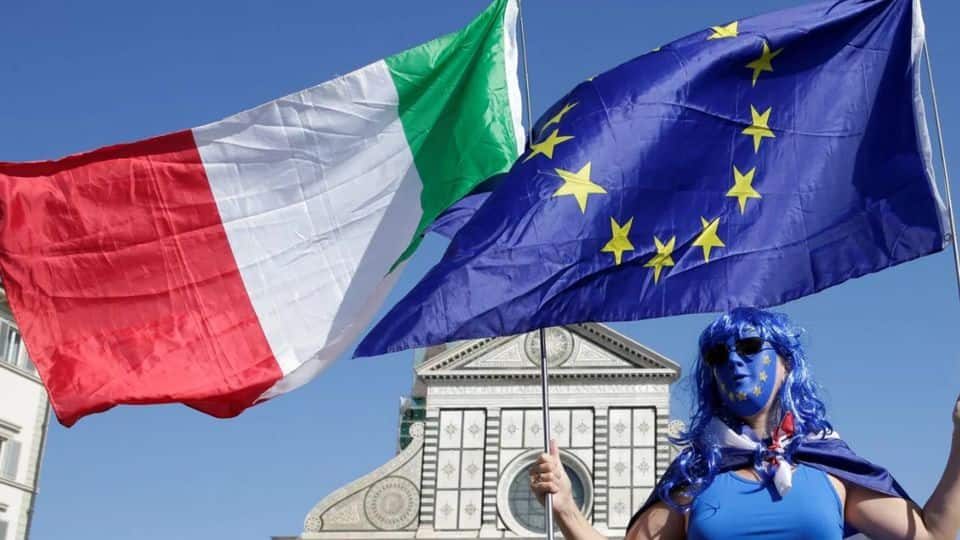
Italy elections: What does a hung parliament imply?
What's the story
In Italy's parliamentary elections, voters expressed their disdain for the governing pro-Europe Centre-left Democratic Party. Lagging economy and surging migration made them unpopular, prompting voters to give a divided mandate to hard-right and populist forces. In 2017, when German chancellor Angela Merkel and France president Emmanuel Macron wrested power, EU celebrated. However, with rising Euro-skepticism in Eurozone's third-largest economy, EU might have sleepless nights.
Exit polls
First off, what have the exit polls indicated?
National-broadcaster RAI indicates that anti-establishment Five Star Movement will gain most votes by a single party, about 32%. However, 40% votes are needed for forming a government. Another winner is the centre-right coalition brokered by former tainted PM Silvio Berlusconi. It comprises Berlusconi's Forza Italia, far-right La Lega (Northern League) and neo-fascist Brothers of Italy with 35.5% votes. This suggests a hung parliament.
EU-anger
Euro and EU become rhetorical punching bags for politicians
Early trends showed that all parties which did well share a certain degree of Euroskepticism. They lament that Brussels treats Italians like slaves, with the right La Lega even calling for a referendum on the return of the lira in 2005. A recent survey by the European Parliament indicates that just 39% of Italians have benefited from being in the Euro.
Immigration
Centre-left's "humane" posture to migration caused its downfall
Anti-establishment sentiment is also a result of several illegal migrants from Africa/war-torn countries crossing the sea to enter through Italy's southern coast. Government tried to find a balance between a humane response and enforcing its borders. It asked other EU countries to help patrol the waters and accept some migrants. But, neighbors refused, locking their doors. Anti-immigrant sentiment thus became a vulnerable political nerve.
Five Star
Why is the anti-establishment Five Star Movement getting such traction?
Founded in 2009, the Five Star Movement by comedian-turned politician Beppe Grillo promises to return power back into the hands of the people. At first, it focused on uncovering corruption. Its "five stars" represent public water, sustainable transport, sustainable development, the right to internet access and environmentalism. Its populist proposals might add several billions to Italy's budget deficit, already hovering at 130% of GDP.
Right
Why is the far-right gaining ground?
Berlusconi's Center-right coalition has gained ground. This is attributed to increasing support for La Lega, whose denunciation of immigration/EU and ties with Vladimir Putin's United Russia party have worked in its favor. What's more, Berlusconi, who can't become PM due to a 2013 tax-fraud case, also floated the idea of a "flat tax" for all workers paying a single rate, regardless of income.
Procedure
What will be next steps, in case of hung parliament?
President Sergio Mattarella will consult with winning parties. He will confer "an exploratory mandate" on the leader most capable of putting together a coalition. "Full mandate" will be given after he wins the necessary votes in the Senate and Chamber of Deputies. Notably, though PM is chosen from the largest party, his nomination must be confirmed by all lawmakers.
Possible scenarios
What are the possible coalition scenarios?
Considering the varied ambitions, government-formation negotiations may extend till March. Grand coalition joining Italy's traditional ideological-rivals incumbent Centre-left Democratic Party and right Forza Italia might not cobble together the necessary numbers. Five Star Movement and La Lega could unite as both are populist and Eurosceptic. But Five Star voters are mostly left and won't like this. Berlusconi could also lead negotiations and play kingmaker.